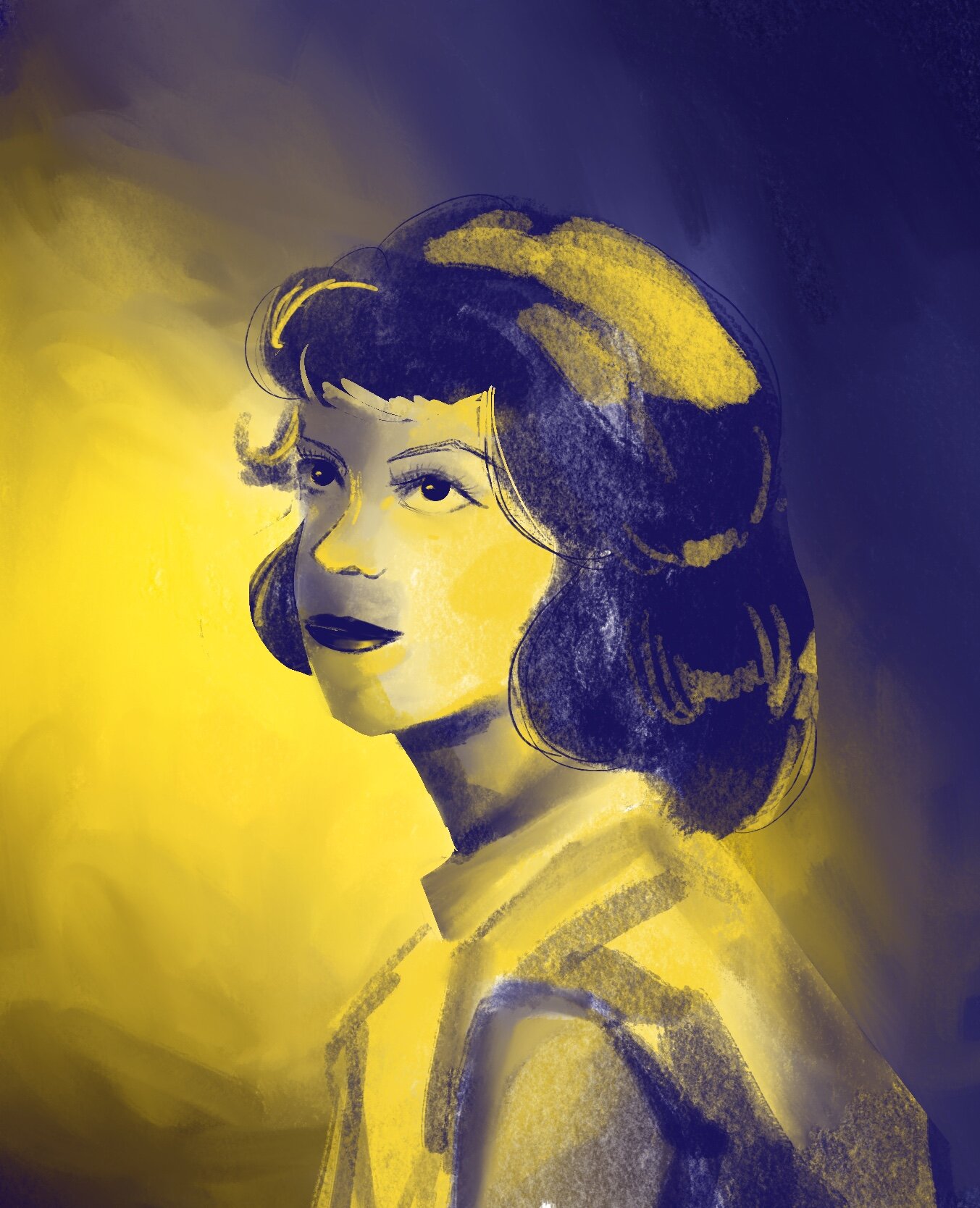Plath and Hughes: Reshaping the Narrative
Illustrated by Victoria Cheng.The tragic inner life of Sylvia Plath has long been of public and literary fascination, perhaps owing to her place in the tradition of the young, doomed poet. But one element of her life that has captured many an imagination is that of her volatile and ultimately mutually destructive relationship with poet Ted Hughes. Fans and critics alike have read Plath’s poetry and journals to try to glean an insight into the notions of passion, obsession and abuse which pervaded her and Hughes’ domestic life. It has been argued that Hughes’ alleged abuse, manipulation and numerous infidelities were the ultimate cause of Plath’s suicide, leading many feminist critics in the 1970’s to openly point the blame at Hughes. Such is the controversy around their marriage that Plath’s grave has repeatedly had the surname ‘Hughes’ scratched off in protest. Tension between the two writers’ accounts of their marriage remain of great interest to literary critics.
But how are these ideas reflected in both Plath and Hughes’ poetry? Hughes avoided talking publicly about his marriage and his wife’s suicide until the publication of his 1998 poetry collection, which contained many vivid and moving accounts of his marriage to Plath, and his subsequent affairs. Whilst the publication of Birthday Letters may have simply been a process of catharsis for Hughes, many feminist critics have taken issue with the fact that it appears to place him in the role of the victim. The later publication, which allowed for Hughes’ side of the marriage to be explored, seems to be a form of poetic control over the narrative of their relationship - a sentiment that is strengthened by his admittance of burning Plath’s journals from the last two years of her life. In attempting to arguably reinstate his dominance over the public perception of their marriage, Hughges erases Plath’s efforts to explain her entrapment within the relationship and the domestic sphere. It is somewhat ironic that after her death, Plath’s work was edited and overseen by Hughes before publication. Plath’s poetry argued for emancipation from male oppression, and described subtly the ways in which women never have full ownership of their creativity, or indeed their lives.
Perhaps one of Plath’s most famous works, Ariel was published posthumously in 1963. Her confessional, intimate style of poetry here comes into play most effectively, as she grapples with topics such as identity, grief and the breakdown of her marriage with Hughes. While this collection is unarguably truthful and raw, Hughes’ subsequent re-editing and re-ordering of it means that we may never understand how these poems were ever intended to be read; in this way, Hughes imposed his own narrative and creative ideology onto the work. One of the most famous poems in the collection, ‘Daddy’, provides a damning interpretation of their marriage, and contributes to a more cynical view on the institution of marriage in the collection as a whole. The quote ‘Every woman adores a Fascist, / The boot in the face, the brute / Brute heart of a brute like you’ offers a different perspective, perhaps one which links to an acceptance that she allowed herself to be treated badly in relationships through her life. However, poems such as ‘Ariel’, describing a horse ride, appear to offer an alternate possibility; the movement from darkness into the light of morning creates the sense of escape and freedom from oppression.
It can certainly be said that the belittling of Plath’s voice when considering the marriage of Sylvia Plath and Ted Hughes can be linked to the larger issue of the bias against female voices in poetry, and creates a certain tension in the poetic landscape as a whole. For example, it is interesting that debate still rages over the issue of abuse in the marriage when journals and claims from close friends and family prove it to be true. Though conflicting ideas are presented in both Birthday Letters and Ariel, it seems as though Plath was deprived of the opportunity to tell her story freely – arguably, Hughes’ control was not relinquished even in her death. But Plath’s words also serve as a source of inspiration; I think it would be naive to view Plath as a woman without autonomy and strength, when both her poetry and personal life show her to be self-aware and resilient. She is, after all, the poet who penned the enduring words ‘Out of the ash / I rise with my red hair / And I eat men like air.’
